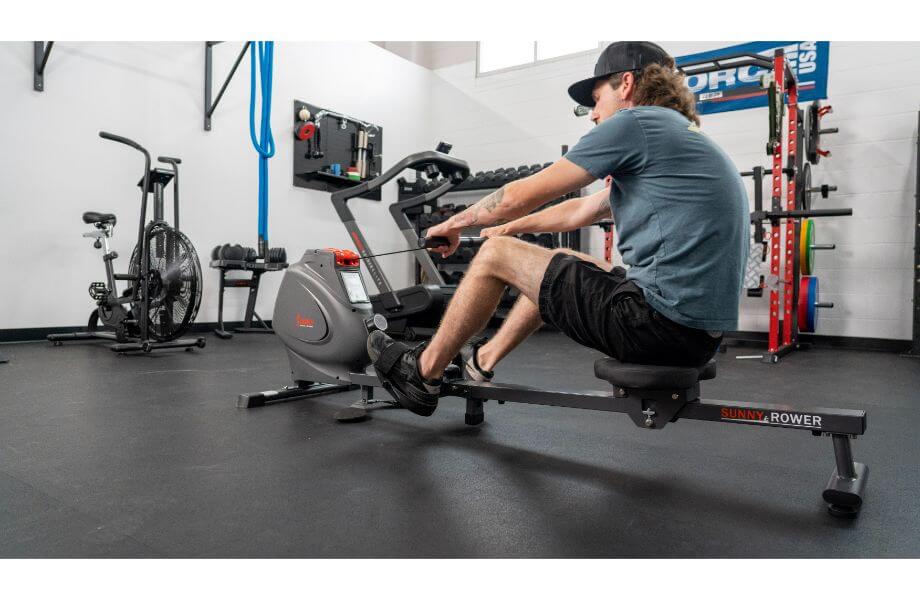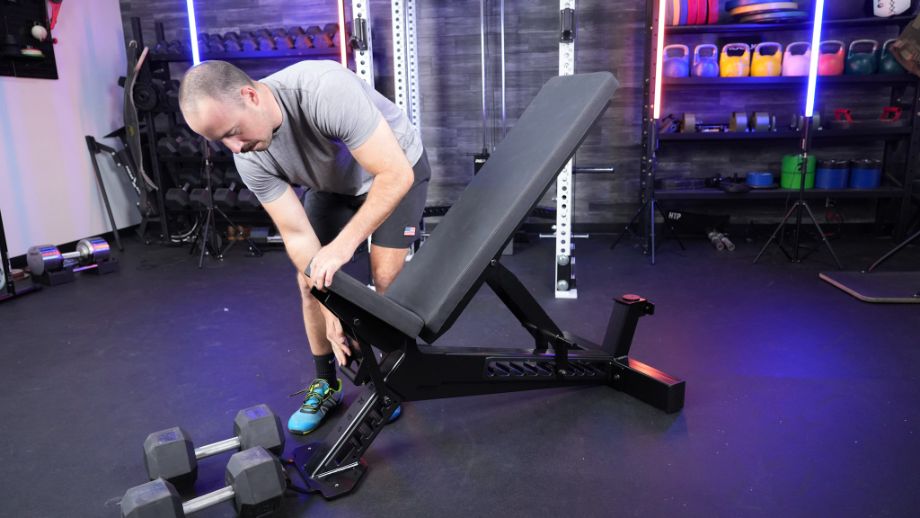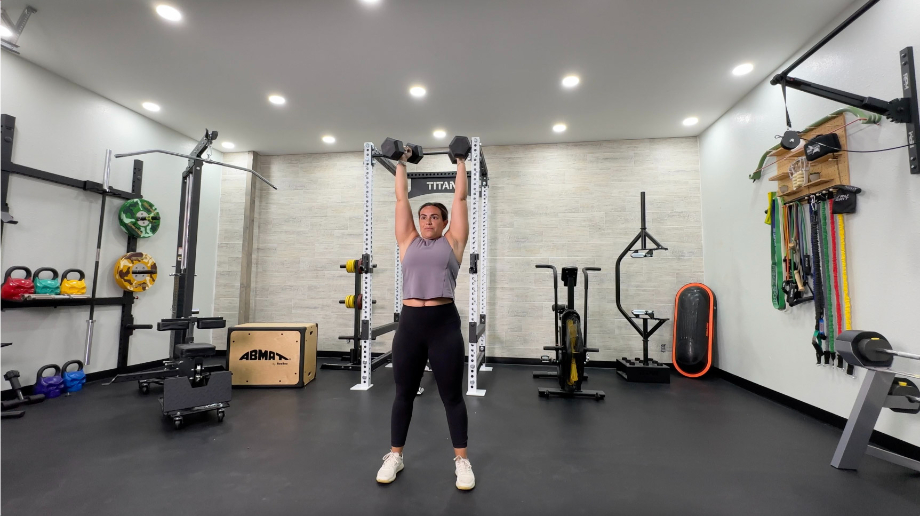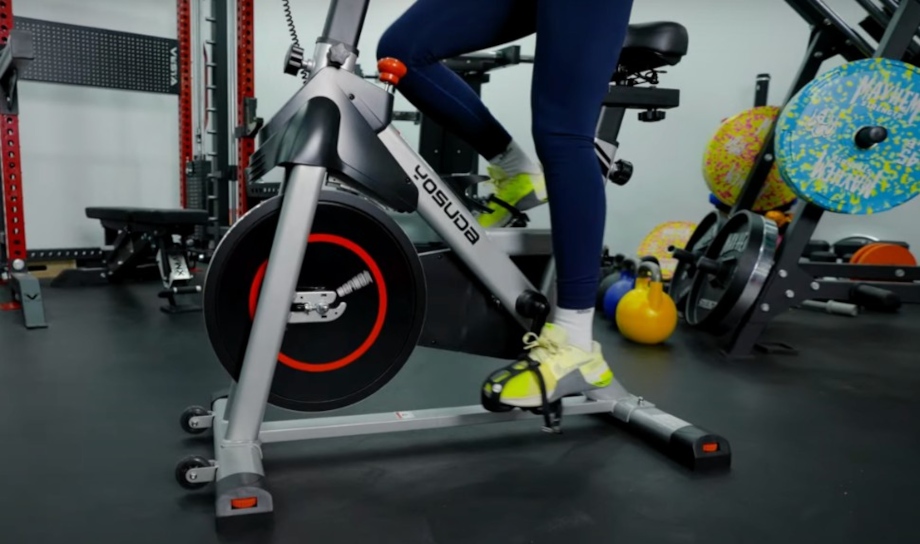Pre-workout supplements are used to enhance energy, focus, and endurance during high-intensity exercise. Known to ignite explosiveness and generate power, they’re common among athletes determined to push their physical abilities to the next level. But before rushing to the nearest supplement shop, you’ll want to know about potential pre-workout side effects.
Common ingredients in pre-workout formulas include caffeine, citrulline, creatine, beta-alanine, branched-chain amino acids (BCAAs), and electrolytes. Some of these ingredients may cause uncomfortable and potentially dangerous side effects, especially if you’ve taken more than the recommended serving size.
RELATED: Best Pre-Workout with BCAAs
In this article, I—a registered dietitian—will explain pre-workout side effects and what causes them so you’ll know the possible risks associated with taking these products. When pre-workout is taken responsibly, most of these side effects can be avoided, so we’ve included some tips to reduce your chances of uncomfortable aftereffects.
Key Takeaways
- Negative side effects of pre-workout may include jitters, tingling sensations, high blood pressure, heart palpitations, bloating, digestive issues, dehydration, headaches, and insomnia.
- Tingling or itchiness of the skin after taking pre-workout is harmless and temporary.
- Sugar alcohols in pre-workout may result in gas, bloating, and diarrhea in some individuals.
- Avoid taking pre-workout at least 6 hours before bedtime to reduce your risk of insomnia.
- There are 150 to 300 milligrams of caffeine in one serving of pre-workout. Do not consume more than 400 milligrams of caffeine per day to avoid negative side effects.
Medical disclaimer: This article is intended for educational and informational purposes only. It is not intended as a substitute for medical advice. For health advice, contact a licensed healthcare provider.
Jitters and Anxiety
Jitters—a feeling of extreme nervousness or anxiety—is one of the most common side effects of taking a pre-workout supplement. So, what is the main ingredient responsible for your pre-workout jitters? Caffeine.
Caffeine
Caffeine is one of the main ingredients in most pre-workout supplements responsible for causing jitters and anxiety. People who are sensitive to stimulants will be more likely to feel nervousness than those with a higher tolerance.
Pre-workout typically contains high amounts of caffeine, ranging from 150 to 300 milligrams per serving. Compare this to the amount of caffeine in a cup of coffee which contains around 95 milligrams per serving. You may be ingesting the amount of caffeine in up to three cups of coffee in just one scoop of pre-workout!

The Food and Drug Administration (FDA) recommends consuming no more than 400 milligrams of caffeine daily to avoid negative side effects1.
Caffeine stimulates the central nervous system and triggers the release of adrenaline, the “fight or flight” hormone. This increases heart rate, blood pressure, and respiratory rate, which can give you an energy boost, but may also result in jitters, anxiety, and nervousness in those sensitive to caffeine, according to the International Society of Sports Nutrition (ISSN)2.
Synephrine, yohimbine, and hordenine are other stimulants included in some pre-workout products that may also lead to jitters. If you have a low tolerance for stimulants, check out these stim-free pre-workout supplements.
Tingling Sensation
If you’ve taken a pre-workout and felt that tell-tale tingling sensation along your scalp or the back of your neck, you’re likely experiencing a side effect from a common ingredient found in many pre-workouts: beta-alanine.
Beta-Alanine
Beta-alanine in pre-workout can cause a tingling or itchy sensation, also known as paresthesia. Beta-alanine converts to carnosine, a molecule that helps to reduce the build-up of lactic acid in your muscles during exercise, which can increase muscle endurance and reduce fatigue.
RELATED: What Is Beta-Alanine?
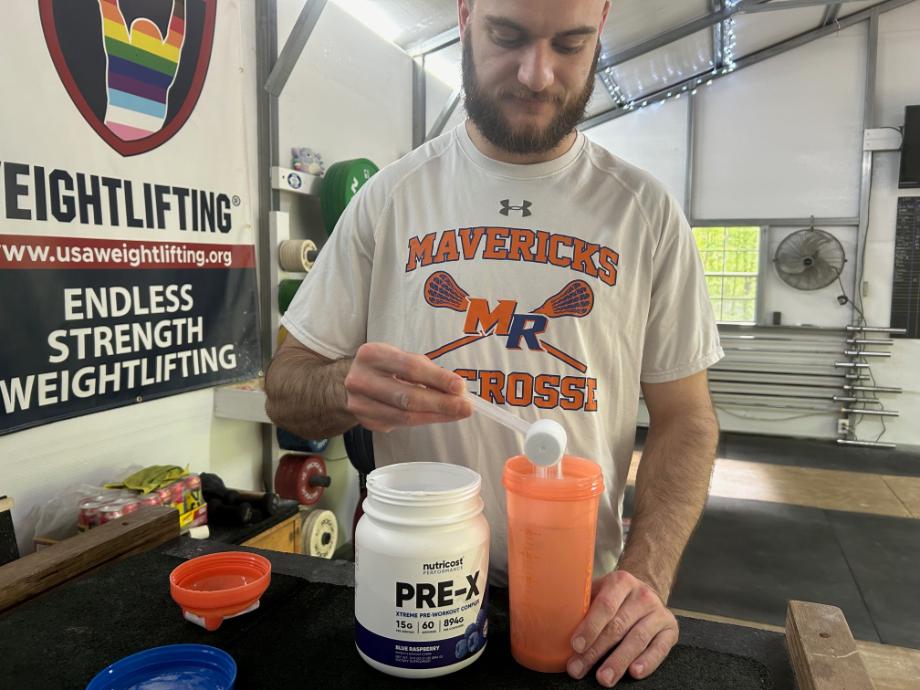
Paresthesia is a common side effect of beta-alanine, likely caused by the activation of nerve endings in the skin. It is hypothesized that beta-alanine3 activates G protein coupled receptors, a family of cell surface receptors responsible for transmitting signals throughout the central nervous system to the skin.
Tingling can be felt anywhere on the body but is most commonly felt on the hands, arms, neck, and face. Although this tingling sensation on the skin may be alarming and uncomfortable for some, it’s not thought to be harmful and usually doesn’t last for more than 60 to 90 minutes3.
RELATED: Best Pre-Workout Without Beta-Alanine
Heart Palpitations and High Blood Pressure
Pre-workout supplements containing stimulants like caffeine may lead to increased heart rate and blood pressure, which can result in heart palpitations for some people2. For instance, caffeine triggers adrenaline which can affect heart rate and rhythm.
Although heart palpitations from pre-workout are usually mild and fleeting, they can be concerning for those with pre-existing heart problems. If you experience ongoing or severe palpitations, shortness of breath, or chest pain after taking pre-workout, seek medical attention immediately.
RELATED: Is Pre-Workout Bad For Your Heart?
To lessen the risk of heart palpitations from pre-workout supplements, remain adequately hydrated and do not take more than the recommended dosage on the product label. If you have pre-existing heart conditions, consider stim-free options and always talk to your doctor before taking a new supplement.
Digestive Issues
Digestive issues like nausea, bloating, cramps, and diarrhea can occur after taking pre-workout. Specific ingredients such as caffeine, sugar alcohols, beta-alanine, sodium bicarbonate, and creatine don’t sit well with everyone and may lead to uncomfortable side effects.
Pre-workout high in sugar, artificial sweeteners, or sugar alcohols can lead to gas, bloating, and diarrhea for some. Sugar alcohols are commonly used in pre-workout because they enhance sweetness and are very low in calories.
RELATED: Best Pre-Workout Without Sucralose
Water Retention
Sugar alcohols are poorly digested4 in the small intestine. When undigested sugar alcohols reach the large intestine, they’re fermented by gut bacteria, which can cause gas and bloating. Additionally, sugar alcohols have an osmotic effect, meaning they draw water into the large intestine and can lead to diarrhea4.
Ingesting high doses of caffeine in pre-workout may have laxative effects that trigger diarrhea. Since caffeine is a stimulant, it can increase gastrointestinal motility and lead to loose stools.

Dehydration
Lastly, be sure to mix your pre-workout with plenty of water. Using too little water may trigger gastrointestinal discomfort and diarrhea. Avoid dry-scooping pre-workout, as this can cause several health problems including stomach cramps and watery stools which dehydrate the body.
Increased Energy Levels
Caffeine in pre-work increases energy levels by blocking adenosine, a neurotransmitter that signals sleepiness and drowsiness. When the activity of adenosine is reduced, you feel more alert, focused, and energized5.
Citrulline6 and arginine are amino acids commonly included in pre-workout supplements for their ability to increase the production of nitric oxide in the body. Nitric oxide relaxes blood vessels and improves blood flow, delivering oxygen and nutrients to your muscles more efficiently to increase energy and improve athletic performance5.
Another popular ingredient in pre-workout that contributes to enhanced energy is creatine. Creatine aids in the formation of ATP, the molecule your cells use for energy. Creatine increases ATP production during exercise, improving explosiveness and power. Research shows7 that creatine supplements intensify force output, augment power output, and improve strength.
RELATED: Creatine vs Pre-Workout: Should You Take Both?
Headaches
As previously mentioned, citrulline may be included in pre-workout to increase nitric oxide and improve blood flow. This increase in blood flow could lead to headaches and migraines8 due to changes in blood pressure in the small blood vessels in your brain.
On the other hand, caffeine consumption can elevate blood pressure by contracting blood vessels. This constriction of blood vessels in your brain may also lead to headaches or migraines6.
If you take pre-workout regularly, you may experience headaches related to caffeine withdrawal. Maintain a consistent daily caffeine intake to avoid withdrawal headaches. If you choose to stop consuming caffeine, withdrawal headaches typically resolve within seven days6.
Those sensitive to caffeine may need to switch to a pre-workout with less caffeine or try a stim-free supplement.
RELATED: Best Natural Pre-Workouts
Insomnia
Caffeine has been shown to improve cognitive and physical performance in sleep deprived individuals2. Athletes who train early or are suffering from jet lag may benefit from caffeine in pre-workout. On the flip side, caffeine in pre-workout can also make it challenging to fall asleep and stay asleep.

When caffeine blocks the effects of adenosine to make you feel less tired, it can also disrupt your sleep-wake cycle2. If taken too close to bedtime, you’ll likely feel wired and restless when it comes time to sleep2. It’s recommended to avoid taking caffeine or other stimulants at least six hours before bedtime to avoid insomnia.
To reduce your risk of insomnia and improve sleep quality, don’t take pre-workout too close to bedtime, follow a consistent sleep schedule, and establish a regular sleep routine.
Who Should Take Pre-Workout Supplements?
Those who train regularly and are less sensitive to caffeine (and other stimulants) are the most likely to benefit from taking a pre-workout supplement. If you do your workouts earlier in the day or by mid-afternoon, a pre-workout may help boost your energy so you can power through your training session. Some pre-workout users even call out the tingling sensation as “motivational” when it comes to their training, like a conditioned response.
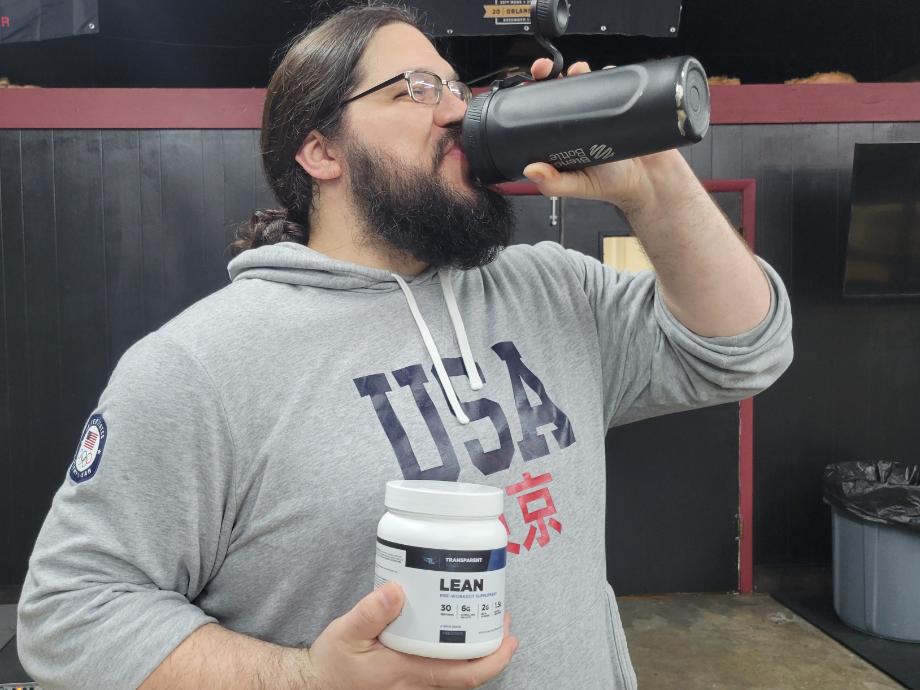
RELATED: When To Take Pre-Workout
If you train at night or are caffeine averse, you can still take a pre-workout in the form of a non-stim version.
How To Get Rid Of Pre-Workout Side Effects
There are several ways you can help mitigate the side effects of pre-workouts, aside from discontinuing use.
- Reduce the amount you take. You can always start with half a scoop to see how it may affect you before ramping up to the full dosage.
- Drink more water. Use the recommended amount of water on the label and continue to drink water throughout your workout as this may help you avoid potential dehydration.
- Look for pre-workouts with certain ingredients. If caffeine is an issue, you can find a caffeine-free version. Similarly, if you want to avoid beta-alanine itch, look for formulas with less or no beta-alanine.
You may also consider these pre-workout alternatives if energy boosting supplements don’t appeal to you.
Pre-Workout Side Effects: Final Thoughts
Pre-workout might make you feel like a beast at a gym when taken responsibly. However, pre-workout supplements can result in uncomfortable side effects for those sensitive to certain ingredients or when taken in excess.
RELATED: Best Pre-Workout for Muscle Gain
Jitters, heart palpitations, and tingling are just a few unsettling pre-workout side effects that can occur in some individuals. To avoid these side effects when taking pre-workout, drink plenty of water and do not exceed the recommended serving size on the product label.
- Caffeine in pre-workout may lead to insomnia, jitters, heart palpitations, high blood pressure, digestive issues, headaches, and enhanced energy levels
- The FDA recommends consuming no more than 400 milligrams of caffeine daily to avoid negative side effects
- Tingling or itchiness of the skin after taking pre-workout caused by beta-alanine is harmless and temporary
- Sugar alcohols in pre-workout may result in gas, bloating, and diarrhea in some individuals
- Avoid taking pre-workout at least 6 hours before bedtime to reduce your risk of insomnia
Pre-Workout Side Effects: FAQs
Do pre-workouts have side effects?
Yes, some individuals may experience side effects after taking pre-workout. You could have jitters, heart palpitations, tingling, digestive issues, increased energy, headaches, and insomnia after taking pre-workout.
How to calm down after taking pre-workout?
Try to remain calm and don’t panic if you feel that you’ve taken too much pre-workout. Take deep breaths and drink plenty of water to help minimize the side effects and keep yourself hydrated.
Is pre-workout safe for your body?
Whether or not pre-workout is safe depends on the specific product. Some pre-workout supplements may be safe for most people if taken in the recommended amount, but others could contain potentially harmful ingredients or have dangerous side effects for certain individuals. This is why we always recommend purchasing supplements that have been third-party tested.
Pre-workout may not be safe for individuals with certain pre-existing health conditions. Talk to a healthcare professional before taking a new dietary supplement, and seek medical attention immediately if you experience persistent or severe heart palpitations.
Is it safe to take a pre-workout every day?
It’s generally not recommended to take pre-workout every day. Taking pre-workout daily may increase the risks of harmful side effects. Also, taking pre-workout daily may increase your tolerance, reducing the effects you feel after taking it.
These statements have not been evaluated by the Food and Drug Administration. This product is not intended to diagnose, treat, cure, or prevent any diseases.
References
- Temple JL, Bernard C, Lipshultz SE, Czachor JD, Westphal JA, Mestre MA. The Safety of Ingested Caffeine: A Comprehensive Review. Front Psychiatry. 2017;8:80. Published 2017 May 26. doi:10.3389/fpsyt.2017.00080
- Guest NS, VanDusseldorp TA, Nelson MT, et al. International society of sports nutrition position stand: caffeine and exercise performance. J Int Soc Sports Nutr. 2021;18(1):1. Published 2021 Jan 2. doi:10.1186/s12970-020-00383-4
- Trexler ET, Smith-Ryan AE, Stout JR, et al. International society of sports nutrition position stand: Beta-Alanine. J Int Soc Sports Nutr. 2015;12:30. Published 2015 Jul 15. doi:10.1186/s12970-015-0090-y
- Mäkinen KK. Gastrointestinal Disturbances Associated with the Consumption of Sugar Alcohols with Special Consideration of Xylitol: Scientific Review and Instructions for Dentists and Other Health-Care Professionals. Int J Dent. 2016;2016:5967907. doi:10.1155/2016/5967907
- Nowaczewska M, Wiciński M, Kaźmierczak W. The Ambiguous Role of Caffeine in Migraine Headache: From Trigger to Treatment. Nutrients. 2020;12(8):2259. Published 2020 Jul 28. doi:10.3390/nu12082259
- Wax B, Kavazis AN, Weldon K, Sperlak J. Effects of supplemental citrulline malate ingestion during repeated bouts of lower-body exercise in advanced weightlifters. J Strength Cond Res. 2015;29(3):786-792. doi:10.1519/JSC.0000000000000670
- Wax B, Kerksick CM, Jagim AR, Mayo JJ, Lyons BC, Kreider RB. Creatine for Exercise and Sports Performance, with Recovery Considerations for Healthy Populations. Nutrients. 2021;13(6):1915. Published 2021 Jun 2. doi:10.3390/nu13061915
- Pradhan AA, Bertels Z, Akerman S. Targeted Nitric Oxide Synthase Inhibitors for Migraine. Neurotherapeutics. 2018;15(2):391-401. doi:10.1007/s13311-018-0614-7






